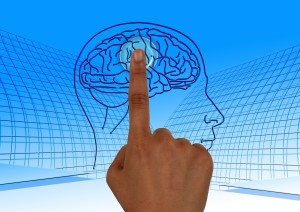- Calls to this hotline are currently being directed to Within Health, Fay or Eating Disorder Solutions
- Representatives are standing by 24/7 to help answer your questions
- All calls are confidential and HIPAA compliant
- There is no obligation or cost to call
- Eating Disorder Hope does not receive any commissions or fees dependent upon which provider you select
- Additional treatment providers are located on our directory or samhsa.gov
The Brain and Eating Disorders – Can the Brain be Repaired?

Contributor: Camille Williams, MA, LCPC, Eating Disorder Specialist at Timberline Knolls Residential Treatment Center
Understanding and applying neuroscience to treatment and recovery can prove highly effective. Eating disorders affect all areas of the body, and the brain is significantly impacted. Neuroscience and neuroplasticity provide hope that any damage can be repaired and restored in recovery.
One significant area of the brain, the amygdala, activates with stress and fear and sends signals and cues throughout the brain to activate the stress response. Unfortunately, this causes many areas of the brain to go off-line in order for those survival instincts to stay highly activated.
Most individuals with eating disorders are living in a constant state of fear and stress, which means many important areas of the brain are turned off and not being utilized or strengthened.
This highlights the importance of stress management techniques including deep breathing exercises to help activate the relaxation response in the body rather than remaining in a constant stress response state.
When the amygdala is in overdrive, it has a domino effect on other areas of the brain, including the hippocampus, known as the memory and learning center of the brain. It makes sense that when a person is highly stressed, memories start to get a little clouded and fuzzy.
All the details of a specific moment aren’t really that important when in survival mode. However, life can become very unclear and confusing when someone is constantly stressed and therefore consistently creating distorted and incomplete memories.
This, in turn, can create more stress, more activation of the amygdala, and continued lack of proper functioning of the hippocampus. The more often this happens, the smaller the hippocampus becomes because cortisol, the stress hormone, erodes the hippocampus.
Exercise and Proper Nutrition
Ironically enough, one way to increase and rebuild this area of the brain is through moderate exercise and proper nutrition. This may also indicate that continued eating disorder behaviors may further damage or impair the hippocampus.

The insula is another part of the brain that is often not functioning properly for an individual with an eating disorder. Typically, this part of the brain will also go off-line or shut down. The insula provides internal awareness to emotional feelings and sensations in the body including hunger and fullness.
When an individual with an eating disorder is expressing confusion as to how they are feeling or experiencing a disconnection from their body, it is most likely a lack of activation in the insula.
Many common grounding techniques can help to reactivate and strengthen the insula. This can include mindfulness techniques with senses like touch or yoga that can deepen awareness of sensations in the body.
The way individuals with eating disorders or anyone with an addiction can learn to deactivate the amygdala is through their addiction.
Eating disorder behaviors, substance abuse, and any other addiction cause the nucleus accumbens, often called the reward center of the brain, to hyperactivate.

This area of the brain is not designed to be overactive, and when it is functioning in a healthy way, it will activate at low to moderate levels. To the benefit of the addict, when this area of the brain is in overdrive, the amygdala is temporarily quieted and shut down.
This has the unfortunate side effect of taking away pleasure from everyday activities and hobbies that moderately activates the nucleus accumbens.
This explains why addictions are so challenging to treat because the individual may continue to crave the “high” from flooding the nucleus accumbens with behaviors.
In recovery, an individual with an eating disorder needs to grieve the loss of experiencing this relief and practice experiencing joy and satisfaction from everyday life pleasures.
These parts of the brain are just a few highlights of the impact eating disorders have on the brain and how the brain shapes behaviors. It is helpful to understand the relationship between eating disorder behaviors and the brain to help the recovery process.
This includes strengthening areas of the hippocampus and insula and lowering activation of the amygdala and nucleus accumbens. Eating disorder recovery focuses on reconnecting with the nutritional and emotional needs of the body, and the brain is a significant part of the body that needs healing.
 About the Author: Camille Williams, MA, NCC, LCPC
About the Author: Camille Williams, MA, NCC, LCPC
As the Eating Disorder Program Coordinator, Camille supports the development of curriculum, supervises the eating disorder specialist, and provides group therapy. She also educates and trains all staff on campus and advocates for eating disorder awareness through publications.
Camille started at Timberline Knolls as a Behavioral Health Specialist. She then transitioned into the Eating Disorder Specialist (EDS) role. In this position for nearly five years, she developed her skills and competence in working with the eating disorder population.
Camille received a Bachelor of Arts degree in both psychology and sociology from Augustana College in Rock Island, IL. She then went on to earn a Master of Arts in Clinical Professional Psychology from Roosevelt University, IL.
Camille is a member of the International Association of Eating Disorder Professionals (IAEDP).
References:
[1]: Sweeton, J. (2018). Neuroscience for Clinicians: Brain Change for Stress, Anxiety, Trauma, Moods, and Substance Abuse [Power Point slides and Presentation]. https://www.jennifersweeton.com/The opinions and views of our guest contributors are shared to provide a broad perspective of eating disorders. These are not necessarily the views of Eating Disorder Hope, but an effort to offer a discussion of various issues by different concerned individuals.
We at Eating Disorder Hope understand that eating disorders result from a combination of environmental and genetic factors. If you or a loved one are suffering from an eating disorder, please know that there is hope for you, and seek immediate professional help.
Published on March 1, 2018.
Published on EatingDisorderHope.com

The EatingDisorderHope.com editorial team comprises experienced writers, editors, and medical reviewers specializing in eating disorders, treatment, and mental and behavioral health.

